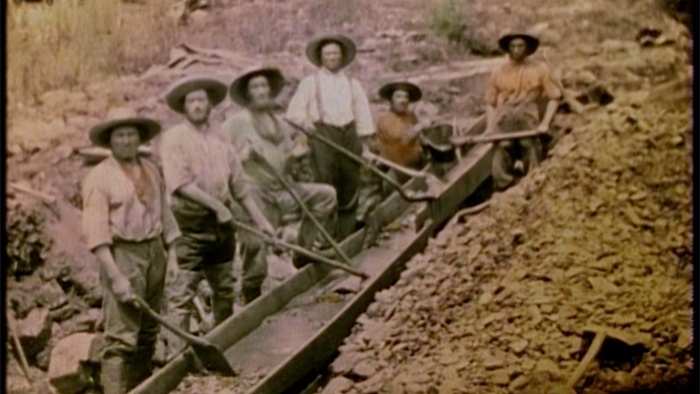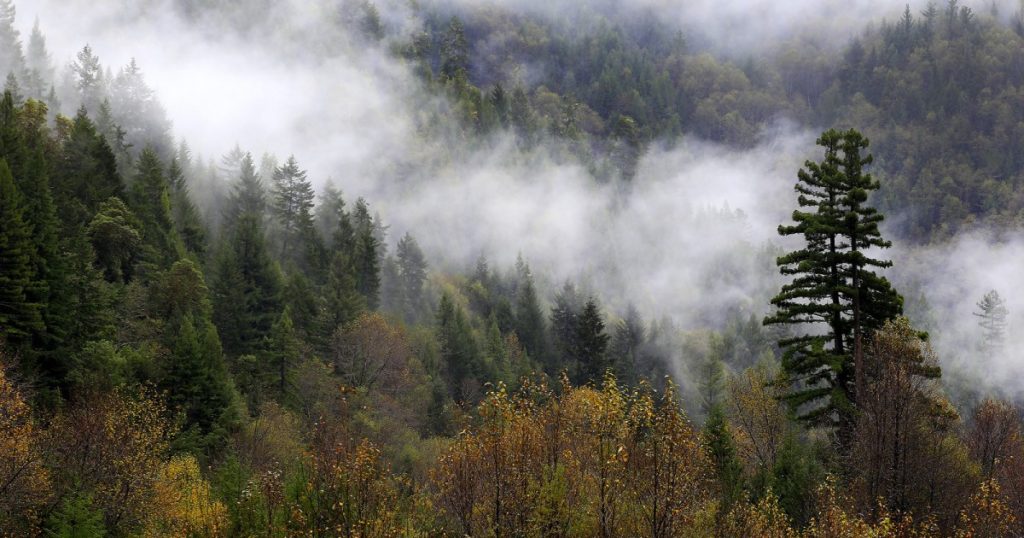The global pandemic and the intensifying ecological crisis have been exposed and shattered beyond restoration rotten norms and untenable normality. Yet America’s mainstream columnists aren’t writing about urgent global challenges, but sticking to literally provincial perspectives.
They ask questions like, “What is California for when summertime, the season in which the Golden State once found its fullest luster, turns from heaven into hell?”
Such a question adheres, to the point of meaninglessness, to two of the unstated commandments for MSM columnists: thou shall remain superficial, and not address fundamental issues; and thou shall write in terms of particularities of place, and not ask the big questions. There are exceptions of course, but as the saying goes, the exception proves the rule.
My intent in this column, as a longtime Californian, is to take up the question of California’s purpose from a deeper perspective.

The reader may ask, isn’t talking about the “purpose of California” inherently silly? Hasn’t California, from its formative years of Gold Rush hysteria, always symbolized the pot of gold at the end of the rainbow?
It’s true that the westward expansion of America found its fullest expression, and both finest and foulest flower, in California. In my neck of the smoldering, charred woods, the last ‘wild’ Indian, Ishi, wandered into the town of Oroville about a century ago after his small tribe had been driven and slaughtered down to just him.
On the other hand, John Muir was the spiritual wellspring and political founder not just of the Sierra Club, but of the environmental movement itself. Reading his luminous writings when I came to California as a young man, and hiking the Sierras when Muir would still have recognized them, I felt to my marrow what Muir meant when he wrote of “the Range of Light.”
And after a memorable high-country backpacking trip starting at Hetch Hetchy, the inundated valley adjacent to Yosemite Valley that Muir said surpassed even Yosemite’s beauty, I also understood what killed him.
Though Hetch Hetchy was within the boundaries of the first national park, it was dammed in the early part of the 20th century to provide water for faraway San Francisco. From then on, truncated waterfalls filled a huge reservoir, marring Hetch Hetchy’s magnificent cliffs with a bathtub ring only miles away from where millions of people gawk at Bridal Veil’s majesty.
Ishi, representing literally the last remaining member of California’s 300 distinct tribes, represents one part of California’s history. And the mounds of hydraulic waste around the streams and rivers of Oroville and a hundred other Gold Mining towns (as industrialized strip-mining replaced the miner’s pan) are remnants of California’s original purpose.
John Muir’s religious feeling about California’s beauty represents another side, indeed another dimension, which gave rise to a national and global environmental movement.
Now that there can be no doubt which side is winning the battle for the earth, nationally and globally, it’s fitting to ask here at the terminus of the American dream: Is there a newfound purpose for California?

The dead-enders who still follow “the former guy” believe California’s problem is not enough of man, irrationally believing that the climate crisis is not the cause of the wildfires, but lack of “forest management.” They prove that Neanderthals are still among us. But reasonable people realize that the Europeanization of California’s (or for that matter Oregon and Washington’s) forests is completely unworkable.
So can California, which prides itself as the world’s fifth largest economy if it was its own nation (as much of the rest of America often views it), stand for something larger?
Kiwis love to say, “New Zealand punches above its weight.” But California punches way below its weight. Why is that so?
I’m not advocating for secession, which on the psychological level has already occurred internally in America anyway. I’m advocating for leadership that encompasses all dimensions of human experience, beginning inwardly with a religious feeling for the sanctity of wilderness and a viable, diverse Earth; and expressed outwardly in a new ‘Manifest Destiny’ of political vision that encompasses the world in an age when national, much less provincial perspectives have become ridiculous.
California is much more than its weather, and our thinking has to go beyond that superficiality, despite and because of how manifestly dire the weather has become. Can California lead the way in redefining humankind’s relationship to nature, and each other?
Californians, finding themselves at the epicenter of the human ecological and identity crisis, know that isn’t a rhetorical question, but the first one that must be honestly asked and held.
Martin LeFevre
lefevremartin at gmail.com


1 comment
Martin, you wrote a beautiful and insightful piece. The facts you report, about the genocide of the original inhabitants, the environmental catastrophe, and the inspiration of John Muir, somehow tie together.
But what to do?
The same forces that bankrolled the industrial scale attack on the environment are still here. The descendants of the First Nations have no more control over their future than the rest of us peons in California.
But there is an organization which is trying to do something about it: the California National Party: they plan for single-payer health care, environmental protection, and a path to sovereignty for those remnants of the First Nations to pursue should they choose to.
And it’s actually possible to vote for Michael Loebs of the California National Party in the recall election this month.
It’s a step.
https://californianational.party/
dan